
SCARS Institute’s Encyclopedia of Scams™ Published Continuously for 25 Years

SCARS™ Special Report: Online Vigilantes Can Actually Hurt Criminal Cases
Experts Warn Online Vigilantes Not To Share Photos Of People Accused Of Crimes
A few months ago in Australia, the country was rocked by three shocking crimes in one week, and the public wanted justice.
Naturally, the modern version of the gossip coffee klatch sprang to life on social media. Instead of just talking about the crimes, everyone wanted a piece of these criminals and proceeded to post anything and everything about them.
Posting in this way satisfies an inner urge for vengeance, not justice. Justice is a slow precise process of determining guilt. Vigilantes want revenge, not justice. Remember the part about innocent until proven guilty?
But Social Media Posts Like These Do The Exact Opposite. And This Becomes A Lesson For Us That Fight Scammers As Well!
AUSTRALIANS were furious. As a country, they were reeling from three horrific crimes occurring within days of each other — crimes which have left two young women dead and a young child’s life altered forever.
A 22-year-old budding comedian Eurydice Dixon’s promising life was cut short when she was stalked, raped and murdered as she walked home from a gig in Melbourne, Victoria, Australia.
On the same day Ms. Dixon was killed, an 11-year-old girl was snatched on her way to primary school in Newcastle before being sexually assaulted for hours on end.
And the following day, a 19-year-old man was charged with the murder of his flatmate, 28-year-old Sydney woman Qi Yu, who had been missing for many days.
When We Hear Stories Like These, It Makes Us Feel Angry, And It Makes Us Feel Helpless.
This is exactly what happens to scam victims!
It’s tempting, then, to feel like we can fight back against the gross injustice in some small way, by sharing photos of the people accused of these heinous crimes online, in an effort to “name and shame” them.
After all, the media is blurring their faces! Journalists aren’t reporting their names — and something has to be done, right?
With the click of a button, photos of the accused accompanied by accusations and speculation can be spread around the world — but while it can be satisfying to feel you are seeking justice, you could actually be doing the complete opposite.
In October 2016, The Conversation (see below ») published a piece on why “TRIAL BY SOCIAL MEDIA” can be such a problem for the criminal justice system – including law enforcement and the courts.
As senior criminology lecturers (Professors), Alyce McGovern and Sanja Milivojevic explained in the piece, sharing photos and speculation online could impact the accused’s right to a fair trial — which could ultimately lead to a lighter sentence or even a mistrial, which could see an offender walk free.
In places like West Africa this is not an issue, but in the developed countries it absolutely can be a major issue. Not only can it taint juries, but in the case of scammers, nothing published online can be used as evidence. The ONLY true “Chain of Custody” online reporting systems are those operated by governments (such as the FBI’s IC3.gov ») and the SCARS|CDN™ which accepts reports on www.Anyscam.com », RomanceScamsNow.com », and over 100 other SCARS|CDN™ reporting locations. For online evidence to be accepted for use in law enforcement and trial it must come directly from the victim and have permanent traceability back to that victim with each step along the way providing certification of authentication. No online crime hater group does or is capable of that, so most of it is a waste of time in apprehending actual criminals unless reported through the SCARS Network »
Additionally, few people online consider that the “Name and Shame” game actually places them at risk of both violating law and becoming personally liable. Shaming is a form of defamation, and unless it is based upon established (legally established) fact the author is liable. If a criminal is ultimately arrested and is found not guilty, even if by a technicality, then everyone who posted about them is liable.
More Important Is The Damage It Can Do To Trying An Arrested Suspect!
“Activity on Facebook and Twitter can pose a threat to prosecutions and the right to a fair trial through practices such as sharing photos of the accused before an indictment, creation of hate groups, or jurors sharing their thoughts about a case online,” Alyce McGovern and Sanja Milivojevic wrote.
“In the Meagher case, Victoria Police used its Facebook page to educate the public about the consequences of such breaches. In addition, a web gag on social media was imposed by a magistrate who suppressed the information that might compromise the trial.”
Keep This In Mind If You Belong To One Of The Thousands Anti-Scam Hate Groups
Posting fake photos could make you liable to the impersonation victim too! Not to mention any criminal extradited to the U.S., Canada, Australia or New Zealand, the U.K. or Europe!
Playing vigilante is not a game, and while there is freedom of speech, there is not freedom to defame. These are not games and must be done in compliance with the law or else you become the criminal. Great care must be taken if you pretend to be a journalist and want to report on crime. Incompetence and ignorance are no excuse under the law.
Exposing scammers has some value to help people learn if they are being scammed. Beyond that almost no value except to feed the rage of victims trapped by their own hate.
– – – – – – – – – – – – – – MORE – – – – – – – – – – – – – –
Social Media And Crime:
The Good, The Bad And The Ugly
[contentcards url=”https://theconversation.com/social-media-and-crime-the-good-the-bad-and-the-ugly-66397″ target=”_blank”]
SCARS, its divisions, affiliates, and members are the ONLY private entity that both follows the law, its Code of Conduct », the NOVA Standard », and the Ethical Standard for Reporting of Scammers!
Please feel free to share your opinions on this topic in the comments below!
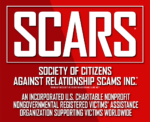
SCARS™ Team
A SCARS Division
Miami Florida U.S.A.
END
– – –
Tell us about your experiences with Romance Scammers in our Scams Discussion Forum on Facebook »
– – –
FAQ: How Do You Properly Report Scammers?
It is essential that law enforcement knows about scams & scammers, even though there is nothing (in most cases) that they can do.
Always report scams involving money lost or where you received money to:
- Local Police – ask them to take an “informational” police report – say you need it for your insurance
- Your National Police or FBI (www.IC3.gov)
- The SCARS|CDN™ Cybercriminal Data Network – Worldwide Reporting Network HERE or on www.Anyscam.com
This helps your government understand the problem, and allows law enforcement to add scammers on watch lists worldwide.
– – –
Visit our NEW Main SCARS Facebook page for much more information about scams and online crime: www.facebook.com/SCARS.News.And.Information
To learn more about SCARS visit www.AgainstScams.org
Please be sure to report all scammers HERE or on www.Anyscam.com
All original content is Copyright © 1991 – 2018 SCARS All Rights Reserved Worldwide & Webwide – RSN/Romance Scams Now & SCARS/Society of Citizens Against Relationship Scams are all trademarks of Society of Citizens Against Relationship Scams Incorporated (formerly the Society of Citizens Against Romance Scams)
Legal Notices:
All original content is Copyright © 1991 – 2018 SCARS All Rights Reserved Worldwide & Webwide. Third-party copyrights acknowledge.
SCARS, RSN, Romance Scams Now, SCARS|GLOBAL, SCARS, Society of Citizens Against Relationship Scams, Society of Citizens Against Romance Scams, SCARS|ANYSCAM, Project Anyscam, Anyscam, SCARS|GOFCH, GOFCH, SCARS|CHINA, SCARS|CDN, SCARS Cybercriminal Data Network, Cobalt Alert, Scam Victims Support Group, are all trademarks of Society of Citizens Against Relationship Scams Incorporated.
Contact the law firm for the Society of Citizens Against Relationship Scams Incorporated by email at legal@AgainstScams.org
-/ 30 /-
What do you think about this?
Please share your thoughts in a comment below!
Table of Contents
- Experts Warn Online Vigilantes Not To Share Photos Of People Accused Of Crimes
- But Social Media Posts Like These Do The Exact Opposite. And This Becomes A Lesson For Us That Fight Scammers As Well!
- When We Hear Stories Like These, It Makes Us Feel Angry, And It Makes Us Feel Helpless.
- Keep This In Mind If You Belong To One Of The Thousands Anti-Scam Hate Groups
- Social Media And Crime:
The Good, The Bad And The Ugly - Tell us about your experiences with Romance Scammers in our Scams Discussion Forum on Facebook »
- Please be sure to report all scammers HERE or on www.Anyscam.com
LEAVE A COMMENT?
Recent Comments
On Other Articles
- velma faile on Finally Tax Relief for American Scam Victims is on the Horizon – 2026: “I just did my taxes for 2025 my tax account said so far for romances scam we cd not take…” Feb 25, 19:50
- on Reporting Scams & Interacting With The Police – A Scam Victim’s Checklist [VIDEO]: “Yes, this is a scam. For your own sanity, just block them completely.” Feb 25, 15:37
- on Danielle Delaunay/Danielle Genevieve – Stolen Identity/Stolen Photos – Impersonation Victim UPDATED 2024: “She goes by the name of Sanrda John now” Feb 25, 10:26
- on Reporting Scams & Interacting With The Police – A Scam Victim’s Checklist [VIDEO]: “So far I have not been scam out of any money because I was aware not to give the money…” Feb 25, 07:46
- on Love Bombing And How Romance Scam Victims Are Forced To Feel: “I was love bombed to the point that I would do just about anything for the scammer(s). I was told…” Feb 11, 14:24
- on Dani Daniels (Kira Lee Orsag): Another Scammer’s Favorite: “You provide a valuable service! I wish more people knew about it!” Feb 10, 15:05
- on Danielle Delaunay/Danielle Genevieve – Stolen Identity/Stolen Photos – Impersonation Victim UPDATED 2024: “We highly recommend that you simply turn away form the scam and scammers, and focus on the development of a…” Feb 4, 19:47
- on The Art Of Deception: The Fundamental Principals Of Successful Deceptions – 2024: “I experienced many of the deceptive tactics that romance scammers use. I was told various stories of hardship and why…” Feb 4, 15:27
- on Danielle Delaunay/Danielle Genevieve – Stolen Identity/Stolen Photos – Impersonation Victim UPDATED 2024: “Yes, I’m in that exact situation also. “Danielle” has seriously scammed me for 3 years now. “She” (he) doesn’t know…” Feb 4, 14:58
- on An Essay on Justice and Money Recovery – 2026: “you are so right I accidentally clicked on online justice I signed an agreement for 12k upfront but cd only…” Feb 3, 08:16
ARTICLE META
Important Information for New Scam Victims
- Please visit www.ScamVictimsSupport.org – a SCARS Website for New Scam Victims & Sextortion Victims
- Enroll in FREE SCARS Scam Survivor’s School now at www.SCARSeducation.org
- Please visit www.ScamPsychology.org – to more fully understand the psychological concepts involved in scams and scam victim recovery
If you are looking for local trauma counselors please visit counseling.AgainstScams.org or join SCARS for our counseling/therapy benefit: membership.AgainstScams.org
If you need to speak with someone now, you can dial 988 or find phone numbers for crisis hotlines all around the world here: www.opencounseling.com/suicide-hotlines
A Note About Labeling!
We often use the term ‘scam victim’ in our articles, but this is a convenience to help those searching for information in search engines like Google. It is just a convenience and has no deeper meaning. If you have come through such an experience, YOU are a Survivor! It was not your fault. You are not alone! Axios!
A Question of Trust
At the SCARS Institute, we invite you to do your own research on the topics we speak about and publish, Our team investigates the subject being discussed, especially when it comes to understanding the scam victims-survivors experience. You can do Google searches but in many cases, you will have to wade through scientific papers and studies. However, remember that biases and perspectives matter and influence the outcome. Regardless, we encourage you to explore these topics as thoroughly as you can for your own awareness.
Statement About Victim Blaming
SCARS Institute articles examine different aspects of the scam victim experience, as well as those who may have been secondary victims. This work focuses on understanding victimization through the science of victimology, including common psychological and behavioral responses. The purpose is to help victims and survivors understand why these crimes occurred, reduce shame and self-blame, strengthen recovery programs and victim opportunities, and lower the risk of future victimization.
At times, these discussions may sound uncomfortable, overwhelming, or may be mistaken for blame. They are not. Scam victims are never blamed. Our goal is to explain the mechanisms of deception and the human responses that scammers exploit, and the processes that occur after the scam ends, so victims can better understand what happened to them and why it felt convincing at the time, and what the path looks like going forward.
Articles that address the psychology, neurology, physiology, and other characteristics of scams and the victim experience recognize that all people share cognitive and emotional traits that can be manipulated under the right conditions. These characteristics are not flaws. They are normal human functions that criminals deliberately exploit. Victims typically have little awareness of these mechanisms while a scam is unfolding and a very limited ability to control them. Awareness often comes only after the harm has occurred.
By explaining these processes, these articles help victims make sense of their experiences, understand common post-scam reactions, and identify ways to protect themselves moving forward. This knowledge supports recovery by replacing confusion and self-blame with clarity, context, and self-compassion.
Additional educational material on these topics is available at ScamPsychology.org – ScamsNOW.com and other SCARS Institute websites.
Psychology Disclaimer:
All articles about psychology and the human brain on this website are for information & education only
The information provided in this article is intended for educational and self-help purposes only and should not be construed as a substitute for professional therapy or counseling.
While any self-help techniques outlined herein may be beneficial for scam victims seeking to recover from their experience and move towards recovery, it is important to consult with a qualified mental health professional before initiating any course of action. Each individual’s experience and needs are unique, and what works for one person may not be suitable for another.
Additionally, any approach may not be appropriate for individuals with certain pre-existing mental health conditions or trauma histories. It is advisable to seek guidance from a licensed therapist or counselor who can provide personalized support, guidance, and treatment tailored to your specific needs.
If you are experiencing significant distress or emotional difficulties related to a scam or other traumatic event, please consult your doctor or mental health provider for appropriate care and support.
Also read our SCARS Institute Statement about Professional Care for Scam Victims – click here to go to our ScamsNOW.com website.




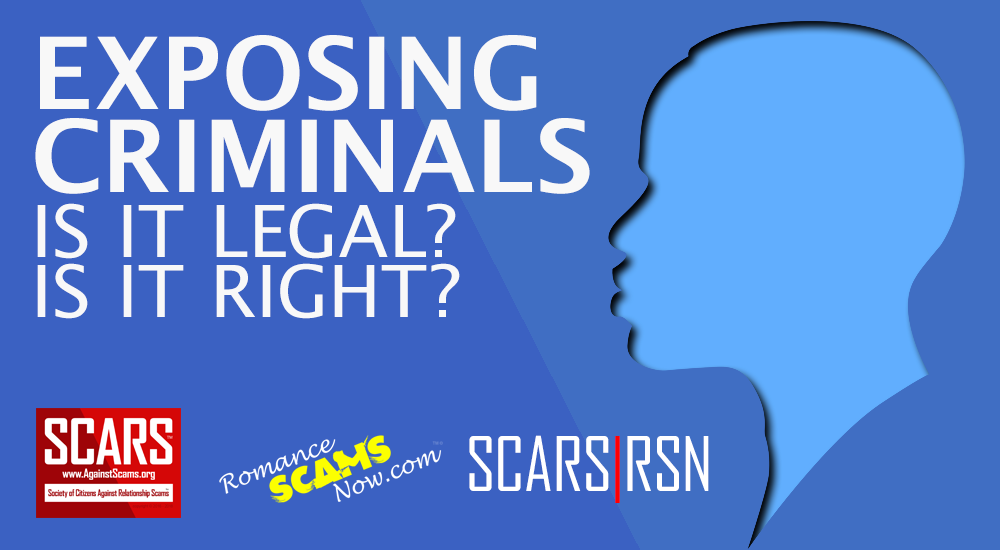

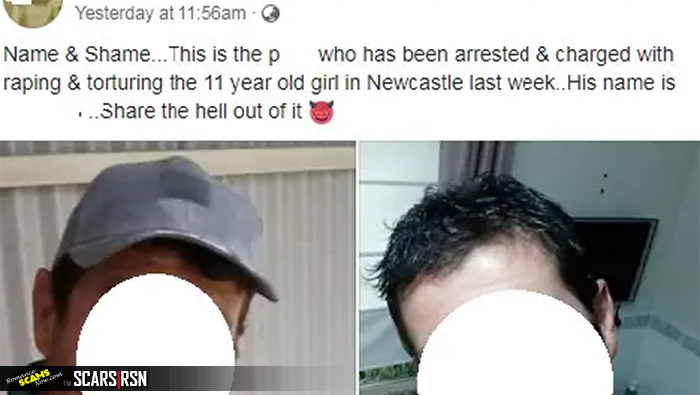
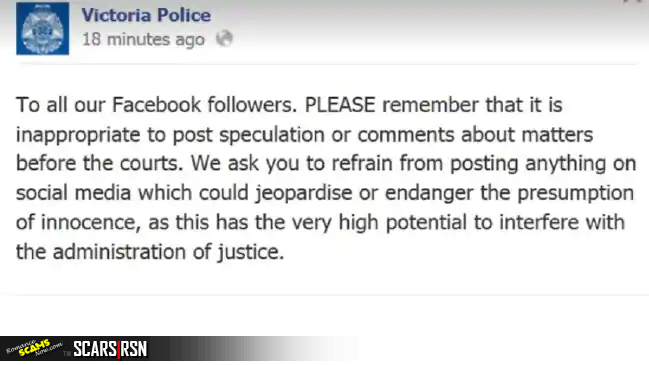



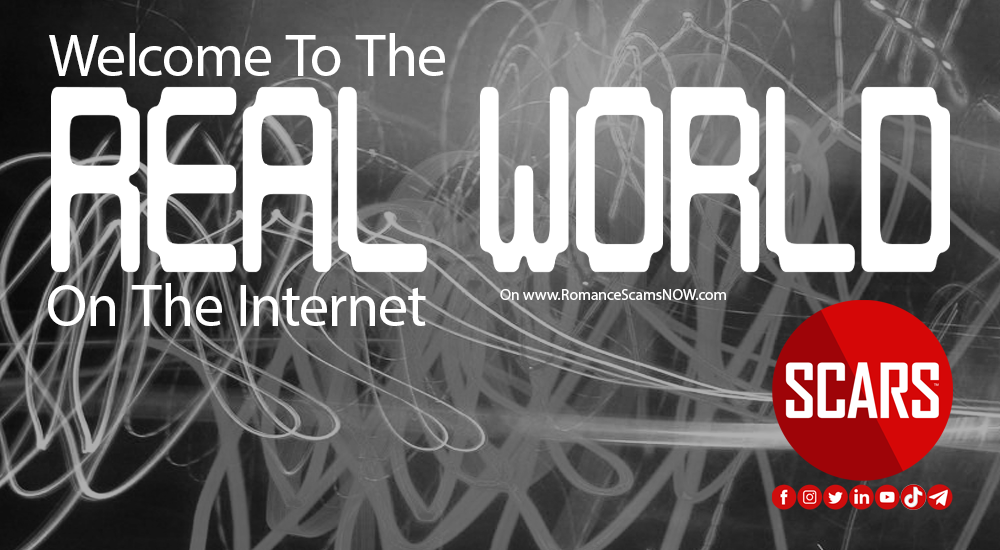
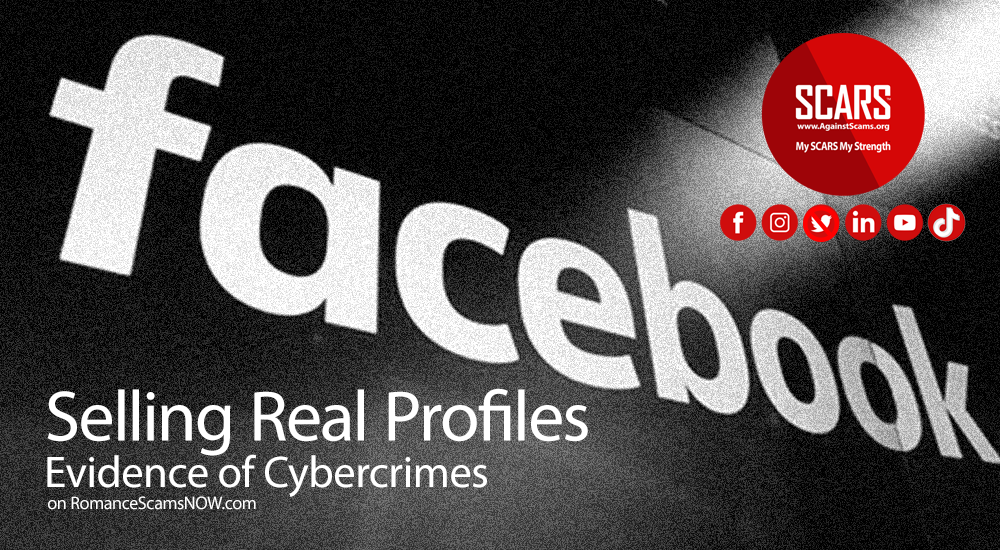
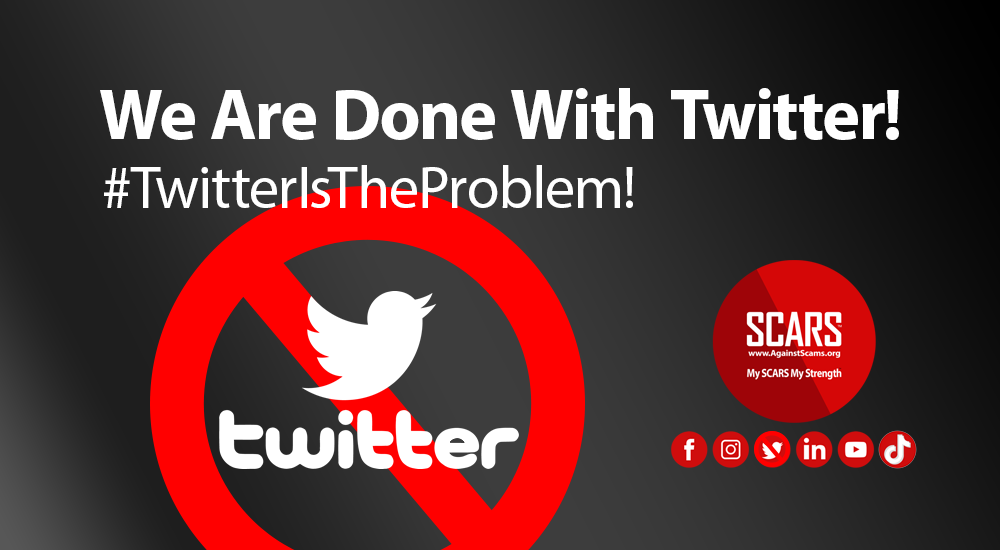

![SCARS™ Insight: Facebook 1 Billion Fake Profiles [Infographic] the world of facebook users 2019 1 the-world-of-facebook-users-2019 interface banner](https://romancescamsnow.com/wp-content/uploads/2019/02/the-world-of-facebook-users-2019-1.png)




Thank you for your comment. You may receive an email to follow up. We never share your data with marketers.